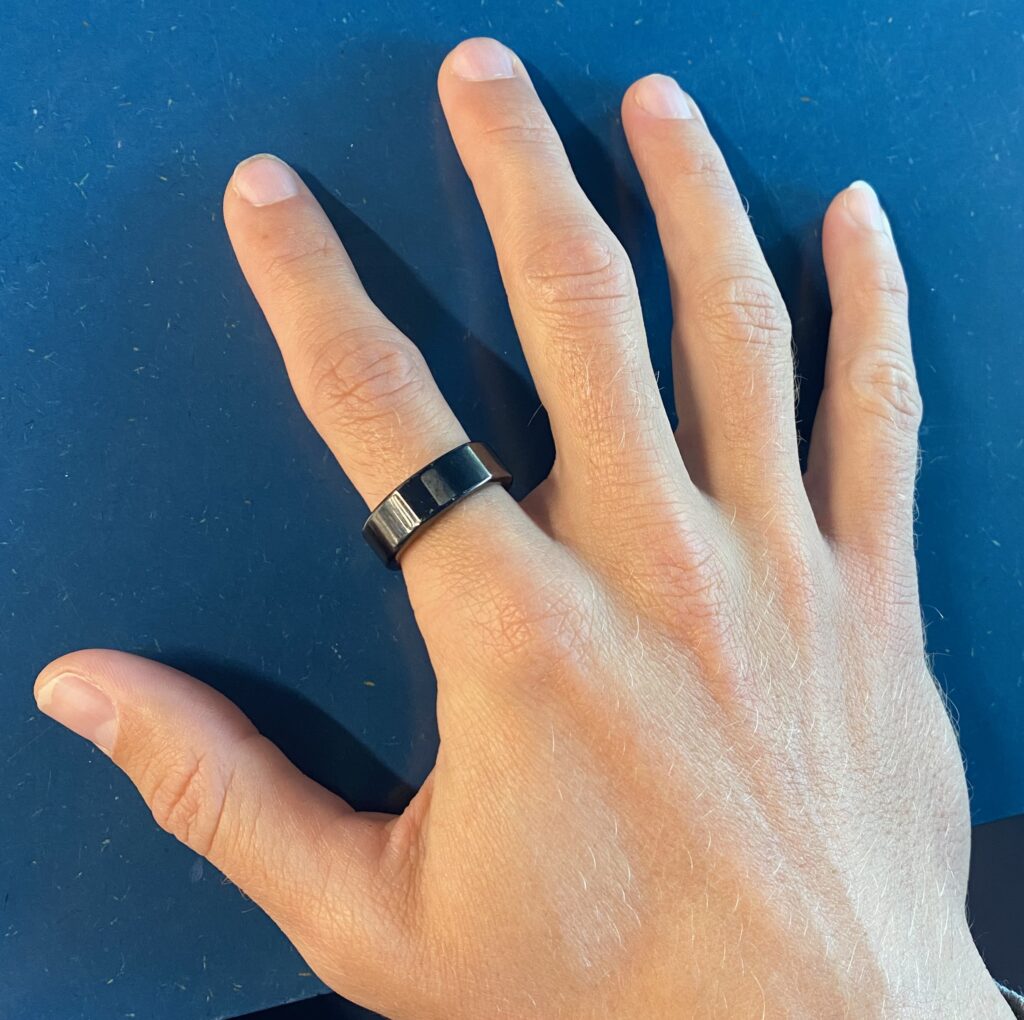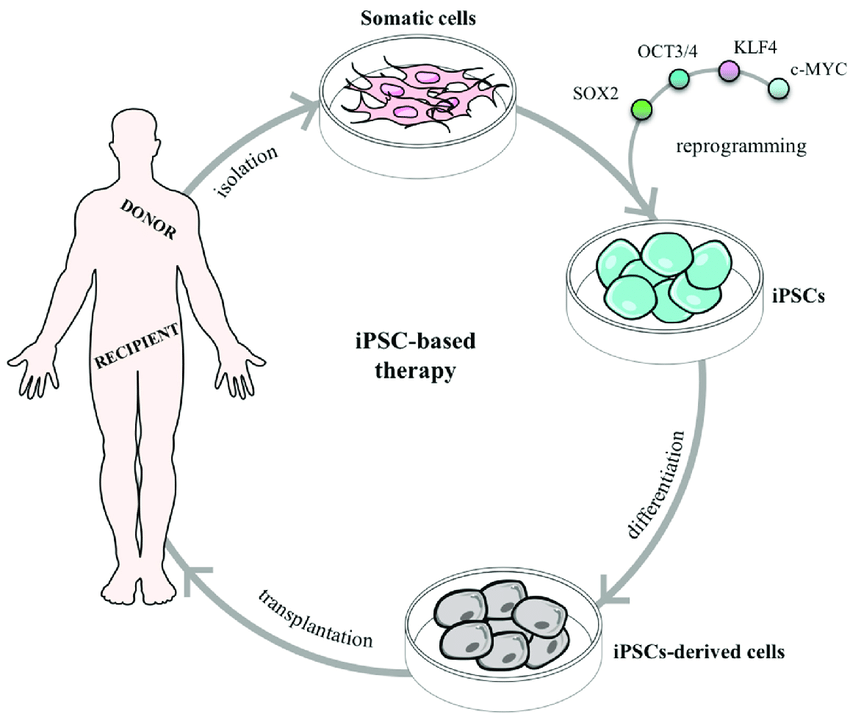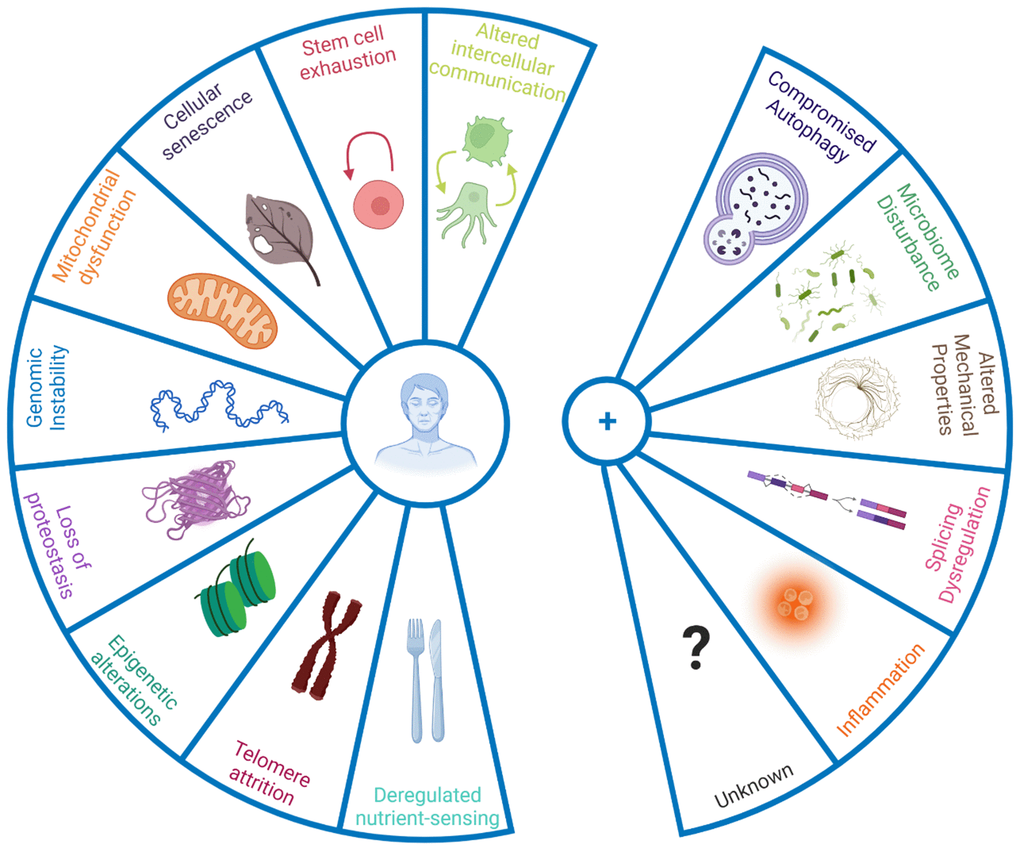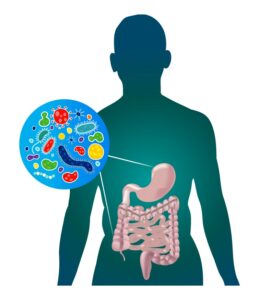If you want to reach a Healthspan of 100+ years, you definitely need to play with a Continuous Glucose Monitor (CGM) at least a couple of times in your life. Read below to understand what it is and why it is so important. I’m not a doctor (and I assume you’re not either), so I’m over-simplifying the complexity of the human body to explain everything.
The CGM
A CGM looks like a small white coin (see below on my arm).

The one I’ve chosen is called Frestyle Libre 3 from Abott Technologies (I have absolutely no stake, no hidden interest whatsoever in this company), it costs roughly $75. It lasts exactly 14 days from the moment you install it on your arm until it expires and you have to take it out and throw it. Its job is to measure the concentration of glucose in your blood every minute.
The role of Glucose in your Body
In a nutshell, Glucose is the fuel of your cells. When you eat, your digestive system breaks down food into different components, and glucose is sent into your bloodstream. If there’s too little of it, your cells don’t have enough energy. When there’s too much of it, serious and dramatic consequences may occur (such as loss of vision, kidney damage, etc …). So your body has an efficient lever to maintain your glucose level under control, a hormone produced by your pancreas, called insulin. Insulin may be considered as “the hormone of abundance”, because when you’re eating more than your body needs (abundance), the production of insulin will tell your body to store that additional glucose in your cells (mostly fat cells, liver and muscle cells).
So what?
You eat sugar, it flows into your bloodstream, then insulin tells your cells to absorb it, end of the story, so far so good right? Well, not quite, and this is where things get tricky and interesting!
During your first decades of life, this glucose / insulin system works perfectly, fine-tuning your glucose levels 24/24 and 7/7 to keep you healthy. However, as you grow older, your cells may become resistant to insulin, so that your pancreas needs to produce more and more insulin to keep your glucose levels within the desired limits, which is called “insulin resistance”. Most of the time, this happens because of decades of excessive quantities of sugar you ingest, associated with glucose spikes in your blood, which generates insulin spikes to compensate. Eventually, this vicious circle of your pancreas producing more and more insulin, and your cells becoming more and more resistant to insulin, ends up into diabetes (or more generally metabolic disorder), which means your body just can’t control glucose in your blood anymore.
If you want to live long and healthy, you want to avoid this at all costs. Metabolic disorder is the “foundation” of all the chronic diseases, which means that people suffering from this will have a skyrocketing probability of suffering from every other age-related major chronic disease (neuro-degenerative, cancer & cardio-vascular).
From Theory to Practice: Flatten the curve!
Now that you know how important it is to keep your glucose levels within a normal range, let’s get from theory to practice! So ideally, you want a fasting glucose level between 60 and 99 mg/dl (in the morning when you wake up, before having breakfast), and during the day, a glucose level as flat as possible. When you eat, depending on your diet, the glucose level will rise, then insulin will bring it back down, but you want small rather than ample variation around the mean.
Each individual will react differently to different foods, so this is why a CGM is essential, you can’t rely on how an average person reacts to a specific food. You need your own user’s manual!
So you have 14 days with a CGM on the back of your arm, this is the one time in your life you can eat the most delicious but unreasonably unhealthy food, just to see how your glucose levels spike (or not). Try everything, junk food, sugar, cake, soda, you name it. Let’s roll baby!
My personal use case
I’ve been wearing my firs CGM for 4 days now, and I’ve tried around 30 different foods, and here’s some examples of what I’ve learned about myself:
– fast-food skyrockets my glucose levels, I mean really crazy, above 230 mg/dl (which is huge), I’ve tested a Quick Giant + a big Coca-Cola + nuggets + lots of ketchup and mayonnaise. Yummy, so delicious, what a pitty!
– those delicious Liegeois with whipped cram send my glucose level to the sky also
– curiously, Taboulet Oriental (Tabbouleh) and Corn also triggered a spike, even more so than a that delicous but super-sugary chocolate “Toblerone”
– orange jus, fruits, potatoes, and pasta seem to be well tolerated, generating no spike of glucose
– 1h of moderate effort like jogging does not seem to influence my glucose
I’ll still test: different types of alcohol, and also sleep deprivation to see how it affects my body’s ability to control blood glucose. It seems from some studies that on average, sleep deprivation reduces your body’s ability to control glucose by as much as 40%. I can’t wait to test this!
Watch out for prediabetes
In addition to helping you understand what food to avoid, a CGM may also teach you something even more important, which is what your diabetes profile is. Oh boy could you have a big surprise (read below)! Diabetes is when your body can’t deal with glucose, because the insulin is either not produced in enough quantity, either because your cells don’t respond to it anymore :
– a glucose level of <100 mg/dl is OK
– a glucose level of 100 – 125 mg/dl means you may be prediabetic.
– a glucose level >125 mg/dl means you have diabetes
Knowing a couple of things related to prediabetes are of essence for your healthspan:
– prediabetes is most of the time asymptomatic, you don’t know it, you don’t feel it – until it is too late!
– prediabetics have an order of magnitude of 5 years of delay between their prediabetic condition and “type 2” diabetes. This is 5 years they won’t event be aware of, because as explained below, this is asymptomatic.
– this condition is extremely common, 80 million americans have it (out of 330 million roughly), which is almost 25%!
Prediabetes: if I may have it, you may have it!
Now, I’ve kept the most interesting part for the end of this article: during my first 4 days of CGM usage, my device has consistently measured a glucose level above 100 mg/dl, with variations between 100 and 200 mg/dl, and most of the values being around 110 mg/dl. If you’re carefully read what I’ve written above, you should understand that this means that I may be prediabetic.
I thought of myself as being almost perfectly healthy, and I invest a great deal of time and effort into staying into shape: I don’t drink, don’t smoke, I’m not overweight, I eat healthy (or so I think), I sleep well, I’m not stressed, I practice sports 5 times / week, etc …
It’s true that I have one diabetes “type 2” case in my family, but I thought it was because of a lack of care.
I have to do additional exams, before I consider this as a certainty, but my takeaway here for you is double:
1. if I have prediabetes, you may have it, don’t sleep on it before it is too late. Remember that 1 in 4 people have it.
2. detected and acted upon early, prediabetes is reversible. Don’t waste your time, don’t act like like an ostrich hiding its head in the sand, and hoping for the best.
Because I do care so much about your short and long term health, I want to ask 2 questions: Are you going to look elsewhere and hope for the best when it comes to your diabetes profile? Or are you going to start finding out as much as possible about your body by ordering a CGM today?



 Telomeres are the small bits of DNA at the end of your Chromosomes. Every time one of your cells divide, and your chromosomes within those cells are copied, these bits of non-coding DNA will shorten. After a couple of dozen of divisions, the telomeres are shortened to exhaustion, and any further cell division will end up cropping small bits of your useful DNA information.
Telomeres are the small bits of DNA at the end of your Chromosomes. Every time one of your cells divide, and your chromosomes within those cells are copied, these bits of non-coding DNA will shorten. After a couple of dozen of divisions, the telomeres are shortened to exhaustion, and any further cell division will end up cropping small bits of your useful DNA information. Mitochondria are the energy production factories of our cells. In short, they eat up glucose, and turn it into another product called ATP, which is used as energy currency in the cell. As we age, there are fewer mitochondria, and their quality is also lower, and without proper levels of energy, the maintenance processes of our cells are heavily impacted.
Mitochondria are the energy production factories of our cells. In short, they eat up glucose, and turn it into another product called ATP, which is used as energy currency in the cell. As we age, there are fewer mitochondria, and their quality is also lower, and without proper levels of energy, the maintenance processes of our cells are heavily impacted. The Microbiome is the whole bacteria and other micro-organism ecosystem, which lives in symbiosis with your body, and is located in your gut. The nature of these micro-organisms, and how they interact with your gut, is closely related to your health: digestive diseases come from microbiome problems, even neuro-degenerative diseases seem to be related to it. Recent studies seem to suggest that as we age, the microbiome changes also, leading to our food being less well decomposed into basic nutrients for our body.
The Microbiome is the whole bacteria and other micro-organism ecosystem, which lives in symbiosis with your body, and is located in your gut. The nature of these micro-organisms, and how they interact with your gut, is closely related to your health: digestive diseases come from microbiome problems, even neuro-degenerative diseases seem to be related to it. Recent studies seem to suggest that as we age, the microbiome changes also, leading to our food being less well decomposed into basic nutrients for our body. Our cells do not just plainly “stick” together by themselves. They’re placed in “collagen complexes”, that come in many shape and sizes, which form the basic “scallfolding” structures for our bodies. For example, the degradation of our collagen structure accounts for our skin being less and less flexible as we age, and wrinkles appearing on our faces. Collagen is produced by a specific category of cells called fibroblasts. Well, chaotic collagen creation and preservation generates not only aesthetic discomfort, but also functional damage, in our bones, our muscles, heart, etc.
Our cells do not just plainly “stick” together by themselves. They’re placed in “collagen complexes”, that come in many shape and sizes, which form the basic “scallfolding” structures for our bodies. For example, the degradation of our collagen structure accounts for our skin being less and less flexible as we age, and wrinkles appearing on our faces. Collagen is produced by a specific category of cells called fibroblasts. Well, chaotic collagen creation and preservation generates not only aesthetic discomfort, but also functional damage, in our bones, our muscles, heart, etc.